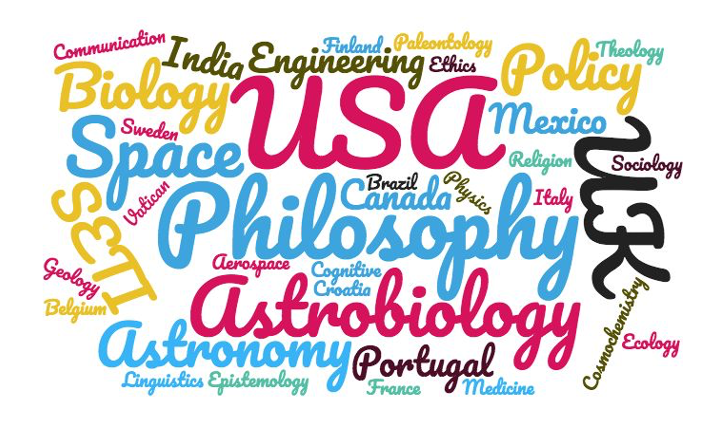
Finitude as the Lingua Cosmica of the Universe
Loading...
Start Date
17-12-2020 11:40 AM
End Date
17-12-2020 12:00 PM
Description
The prospect of life existing elsewhere in the universe raises fundamental questions about the ground and inclusiveness of our moral categories. Although important work has already begun in this area (Michael Ruse, 1985; William Stoeger, 2013; Kelly Smith, 2014), the key challenge with any normative approach to extraterrestrial life is to recognize the centrality of mutual recognition as one of the core anchors of our moral commitments. Organisms need to be capable of recognizing and reciprocating at least some common attitudes or experiences if moral relationships are to take hold. Thus, even though the discovery of extraterrestrial microbial life is the most likely first contact scenario, this event is of limited import when it comes to understanding morality. I argue that our ability to build meaningful moral relationships with extraterrestrial lifeforms ultimately comes down to the extent to which these lifeforms experience the exigencies of time. However we conceptualize our moral categories – Ratiocentric, Biocentric, Ecocentric, Planocentric or even Cosmocentric (Steven J. Dick, 2018)– _without the shared constraint of finitude, and the capacity to recognize this, it is hard to imagine how any substantial moral commitments with other beings could be realized. Building on Heidegger’s insight that expressions of care/concern are grounded in an entities’ experience of temporality, if other forms of life experience the weight of finitude, then it seems extremely likely they will have some familiarity with loss, indecision, vulnerability, and success. It is finitude that is the lingua cosmica for meaningful moral recognition, for without the pressure of time no entity could have any real stake in the encounter with another extraterrestrial form of life. Beings who outlive us by thousands of years, or for whom death has been surpassed by technological advancements, would likely find it extremely difficult, if not impossible, to appreciate the significance of our moral concepts and the commitments they engender. Consequently, the best measure of our ability to have a meaningful moral encounter with alien life, one in which we could learn something substantial about ourselves as well as have a chance at cultivating a relationship of mutual respect, turns on how similar is our experience of finitude. This need not require that alien life look like us, live like us, think much like us, or share similar evolutionary heritage, but that at a minimum the events of birth and death should make some difference to them.
Recommended Citation
Howard, Jason, "Finitude as the Lingua Cosmica of the Universe" (2020). Society for Social and Conceptual Issues in Astrobiology (SSoCIA) Conference. 38.
https://egrove.olemiss.edu/ssocia/2020/schedule/38
Finitude as the Lingua Cosmica of the Universe
The prospect of life existing elsewhere in the universe raises fundamental questions about the ground and inclusiveness of our moral categories. Although important work has already begun in this area (Michael Ruse, 1985; William Stoeger, 2013; Kelly Smith, 2014), the key challenge with any normative approach to extraterrestrial life is to recognize the centrality of mutual recognition as one of the core anchors of our moral commitments. Organisms need to be capable of recognizing and reciprocating at least some common attitudes or experiences if moral relationships are to take hold. Thus, even though the discovery of extraterrestrial microbial life is the most likely first contact scenario, this event is of limited import when it comes to understanding morality. I argue that our ability to build meaningful moral relationships with extraterrestrial lifeforms ultimately comes down to the extent to which these lifeforms experience the exigencies of time. However we conceptualize our moral categories – Ratiocentric, Biocentric, Ecocentric, Planocentric or even Cosmocentric (Steven J. Dick, 2018)– _without the shared constraint of finitude, and the capacity to recognize this, it is hard to imagine how any substantial moral commitments with other beings could be realized. Building on Heidegger’s insight that expressions of care/concern are grounded in an entities’ experience of temporality, if other forms of life experience the weight of finitude, then it seems extremely likely they will have some familiarity with loss, indecision, vulnerability, and success. It is finitude that is the lingua cosmica for meaningful moral recognition, for without the pressure of time no entity could have any real stake in the encounter with another extraterrestrial form of life. Beings who outlive us by thousands of years, or for whom death has been surpassed by technological advancements, would likely find it extremely difficult, if not impossible, to appreciate the significance of our moral concepts and the commitments they engender. Consequently, the best measure of our ability to have a meaningful moral encounter with alien life, one in which we could learn something substantial about ourselves as well as have a chance at cultivating a relationship of mutual respect, turns on how similar is our experience of finitude. This need not require that alien life look like us, live like us, think much like us, or share similar evolutionary heritage, but that at a minimum the events of birth and death should make some difference to them.

